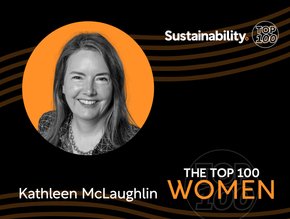BPF launches sustainable packaging design tool

The British Plastics Federation (BPF) has launched a new design tool to help companies ensure their packaging meets sustainability standards.
The free-to-access solution, known as PackScore, helps designers, brands and retailers at the beginning of the design phase to assess whether their packaging is easy to recycle.
Following a series of questions, the proposed packaging’s recyclability is rated on a scale from A to F. The tool then offers suggestions to boost that rating prior to production, taking factors into consideration such as weight and the capacity to incorporated readily-recycled content.
“The BPF is proud to announce the launch of PackScore, and hopes everyone from brand managers, packaging designers and retailers use the tool,” said Philip Law, BPF Director General, in a press release on the matter.
“It can play a vital role to facilitate conversations when it comes time to design new products, and help decision makers ensure their products are designed to be recycled.”
Pressure from consumers for more recyclable packaging materials has been compounded by the recent pledge from Tesco that will see it remove products from its shelves that use packaging that is either challenging or impossible to recycle.
SEE ALSO:
-
Tesco takes hardline with suppliers in fight against plastic
-
Emirates announces commitment to reducing single-use plastics on its flights
The move, backed by the weight of the UK’s leading supermarket chain, necessitates the company’s suppliers to overhaul their packaging practices in order to retain their shelf space in Tesco’s stores.
This poses a challenge of varying degrees to Tesco’s suppliers, dependent on their size and financial capacity to action potentially drastic changes. With PackScore now in play, the assessment process has at the very least been simplified and streamlined for companies of all sizes to avoid being left behind.
Tesco is not the only supermarket chain in the UK to make moves to combat plastic waste, of course. According to Which, the majority of UK chains are signed up to the UK Plastics Pact, led by WRAP (Waste and Resources Action Programme). The pact, which has over 120 signatories, is comprised of a series of powerful goals to be reached by 2025:
- “Eliminate problematic or unnecessary single-use plastic packaging through redesign, innovation or alternative (re-use) delivery models”;
- “100% of plastic packaging to be reusable, recyclable or compostable”;
- “70% of plastic packaging effectively recycled or composted”;
- “30% average recycled content across all plastic packaging";






